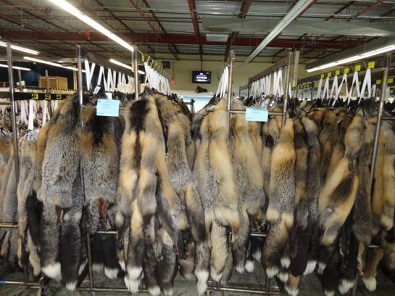If one of Theresa Laliberte’s family traplines is slated for logging, she may not know until it’s too late.
As COVID-19 restrictions prevent in-person meetings between forestry firms and land users, she’s concerned that a shift to online consultations will leave her out of the process.
Laliberte, who lives in Île-à-la-Crosse, says language barriers and a lack of technology access among some land users may hold consultations back.
“I won’t be able to see it. I don’t go online,” she said. “Everything we have is from the bush.”
She supports a recent call by NDP Athabasca MLA Buckley Belanger to pause operations until in-person consultations can continue.
“The ability to publicly consult with the impacted community is severely hampered by COVID-19. In fact, it’s not happening under COVID rules,” Belanger said.
That applies to the public meetings many land users rely on to be informed about forestry projects, he said. Holding virtual consultation isn’t as accessible for fishermen, trappers, wild rice growers or others living in affected areas who may be less tech savvy.
The forestry industry’s jobs are still needed in the region, he noted.
“Nobody’s saying shut down the industry. We’re saying let’s have a pause. Once we’re past this COVID, we’ll re-engage the communities and the duty to consult.”
“The Government of Saskatchewan takes its duty to consult responsibilities seriously,” a government spokesman wrote in a prepared statement.
“Throughout the pandemic, government has continued to fulfil its duty to consult during its review of annual operating plans outlining proposed forest harvesting. Accommodations, such as flexible response deadlines, were made — as appropriate.”
The spokesman acknowledged online options aren’t always “appropriate and accessible for everyone.” Consultation options include government and project proponents using letters, phone calls and meetings, as well as virtual meetings, he wrote.
The Ministry of Energy and Resources approves new and renewed licences on allocations of more than 20,000 cubic metres and the Ministry of Environment handles the review process for timber harvesting plans, including duty to consult, the spokesman wrote.
Concerns over consultation with land users aren’t new for Barry Carriere, vice president of the Northern Saskatchewan Trappers Association. He said consultations can bypass smaller trappers for political leaders, affecting their territory and livelihoods.
He agrees with Belanger’s comments and is worried poor access will particularly affect older land users living on traplines, who don’t always have access to computers or reliable internet connections, he said.
“Not everybody has cellphone technology and the internet. They need to come to our towns and speak with us.”
